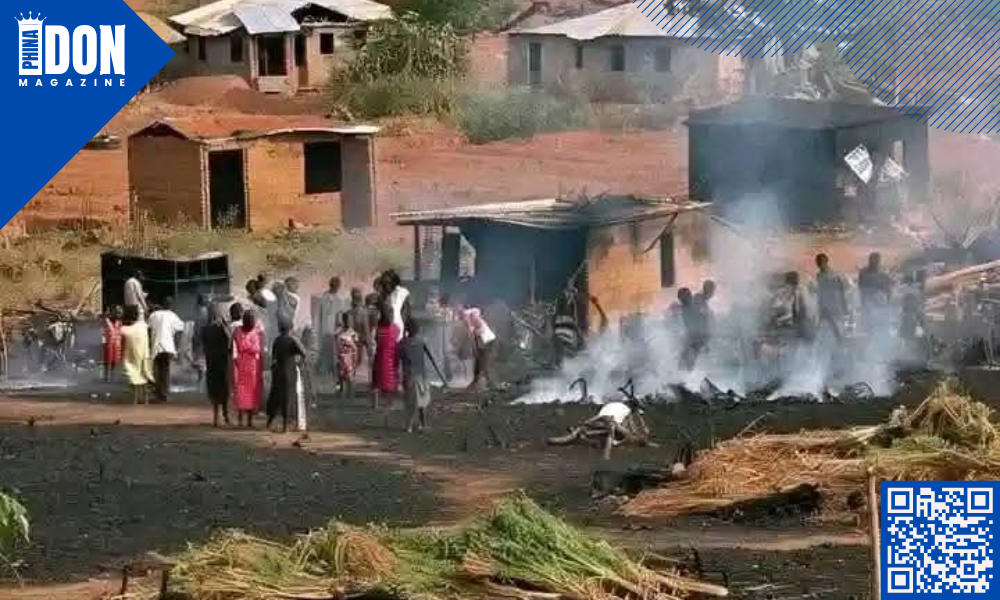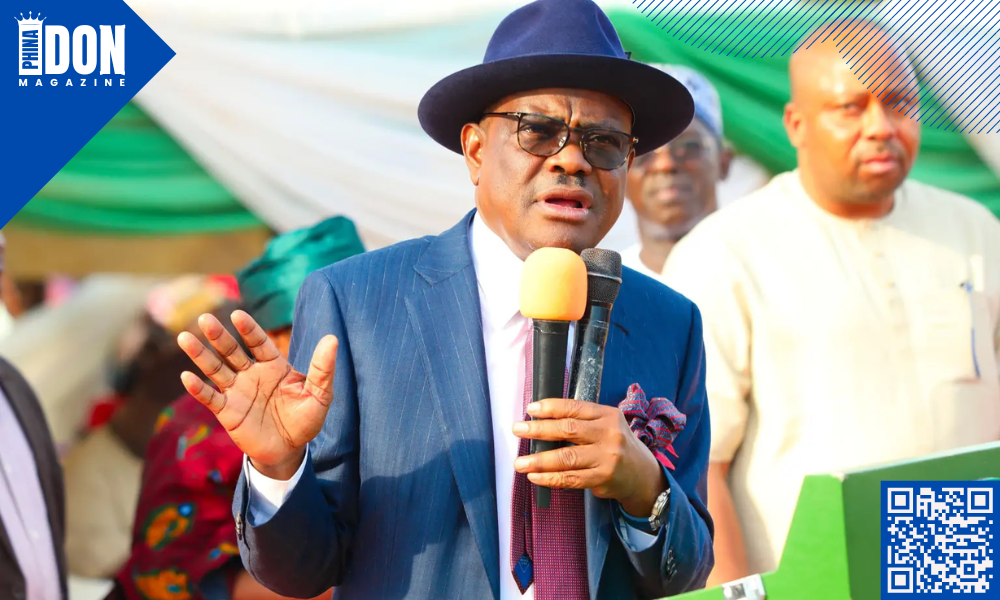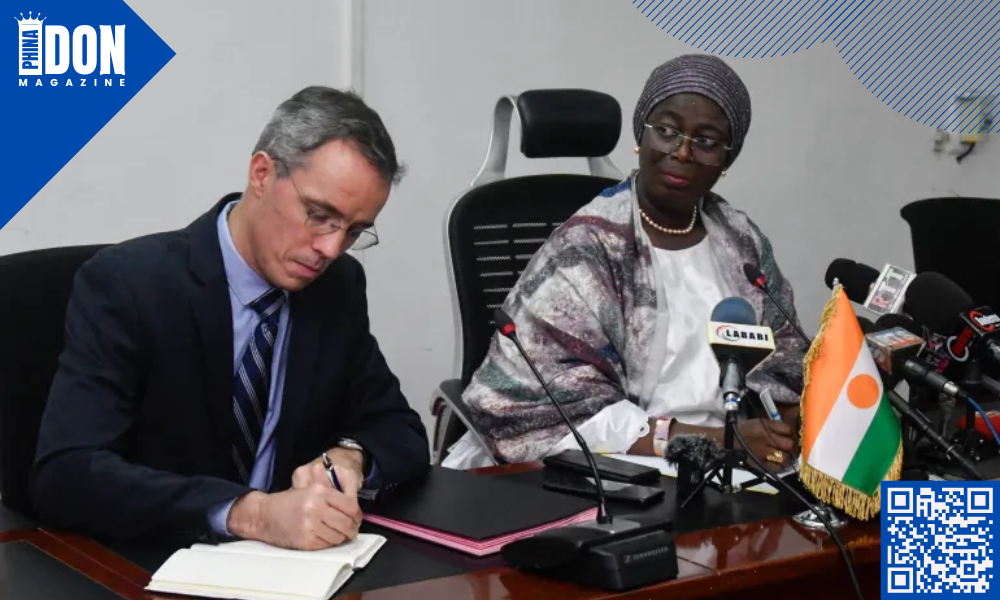News
The Naira’s Decline and Economic Implications in Sub-Saharan Africa

As of August 2024, the Nigerian naira is officially recognized as one of the worst-performing currencies in Sub-Saharan Africa, a designation underscored by the World Bank’s latest report, “Africa’s Pulse.” The naira experienced a staggering depreciation of approximately 43 percent year-to-date, positioning it alongside the Ethiopian birr and South Sudanese pound in a category of weakness that signals severe economic distress.
The factors contributing to this alarming decline are multifaceted. A significant surge in demand for United States dollars in the parallel market has created immense pressure on the naira. This demand predominantly stems from financial institutions and non-financial end-users, which has been exacerbated by a scarcity of dollar inflows and delays in foreign exchange disbursements from Nigeria’s central bank. Despite the government’s attempts at reforming the foreign exchange market, including liberalization efforts initiated in June 2023, such measures have yet to yield the desired stabilization of the currency.
The ramifications of the naira’s depreciation extend beyond mere currency valuation; they permeate the lives of consumers and businesses alike. As the value of the naira continues to dwindle, imported goods have seen a marked increase in prices, further straining the purchasing power of Nigerian households. In contrast, while the naira falters, other currencies in the region, such as the Kenyan shilling and South African rand, have shown resilience and recovery, highlighting the varying economic trajectories within the continent.
Even amidst these challenges, there have been isolated signs of optimism. The naira recorded a modest appreciation of 5.69 percent against the dollar in mid-October 2024. However, this recovery was coupled with a significant decline in foreign exchange turnover, which plummeted by 44.27 percent within the same timeframe. Such fluctuations underscore the volatility of the naira and the persistent underlying economic challenges facing Nigeria.
The World Bank’s cautious outlook for Nigeria forecasts a projected Gross Domestic Product (GDP) growth of 3.3 percent in 2024, with a gradual acceleration expected into 2025-2026. Yet, the recent removal of fuel subsidies has led to a dramatic rise in gasoline prices, further intensifying inflationary pressures that peaked at 34.2 percent in June 2024. Though inflation showed signs of moderating, the continued escalation of fuel prices has the potential to reverse these gains, posing a formidable challenge to policymakers.
In conclusion, the plight of the naira serves as a microcosm of Nigeria’s broader economic struggles. While reforms and market adjustments are underway, the immediate future remains fraught with uncertainty. Addressing the systemic issues that have led to the naira’s depreciation will be critical not only for stabilizing the currency but also for fostering sustainable economic growth in Nigeria and the wider Sub-Saharan region.
News
CDS Alleges Complicity in Yelwata Massacre, Calls for Border Security Overhaul.

Abuja, Nigeria – Chief of Defence Staff (CDS), General Christopher Musa, has accused certain Benue State residents of aiding perpetrators of the recent Yelwata community attack, which resulted in numerous fatalities.
During a press briefing, General Musa stated that the assailants received shelter, sustenance, and intelligence from local individuals, including the location of an Internally Displaced Persons (IDP) camp. He expressed concern over the lack of prior warnings received by security forces.
President Bola Tinubu has mandated the full mobilization of Nigerian security forces to apprehend those responsible and ensure justice. General Musa urged communities to report suspicious activities and emphasized that security is a collective responsibility.
Furthermore, the CDS called on the Federal Government to address Nigeria’s porous borders, citing the influx of arms and fighters from conflict zones as a major security risk. He suggested studying Pakistan’s border security model.
General Musa conveyed condolences to the victims and reaffirmed the military’s commitment to restoring peace through a “Whole-of-Society” approach.
News
FCT Minister Pledges to Relocate Apo Mechanics to Wassa District.

The Minister of the Federal Capital Territory (FCT), Nyesom Wike, has committed to facilitating the relocation of Apo mechanic traders and dealers to the Wassa district. This announcement was made during the inauguration of a committee tasked with overseeing the relocation process.
The committee, chaired by the Minister himself, includes key FCT officials. Wike acknowledged the failures of past administrations to fulfill similar promises but assured that President Bola Tinubu’s administration is dedicated to completing the relocation.
A site visit to Wassa with the Apo mechanics leaders has been scheduled for June 27th. Minister Wike emphasized the importance of unity among the traders and dealers, assuring them that the administration aims to ensure their satisfaction at the new site. He stated the commitment of President Tinubu’s administration to fulfill this promise.
Foreign
Niger to Nationalize Uranium Mine Amidst Shifting Alliances.

Niger has announced plans to nationalize the Somair uranium mine, currently operated by French nuclear firm Orano. This decision marks a further departure from France, Niger’s former colonial power, and a potential realignment with Russia. The military government, in power since a 2023 coup, accuses Orano of unfairly benefiting from the mine’s output since its launch in 1971. Orano, which holds a 63% stake in Somair, disputes the allegations and has threatened legal action, citing a “systematic policy of stripping mining assets.” This move follows Niger’s earlier removal of Orano’s operational control over key mines in the country. The nationalization reflects a broader trend in West Africa, with Mali and Burkina Faso also pursuing similar policies under military rule. The situation is further complicated by existing arbitration processes between Orano and Niger, including a recent lawsuit filed by Orano.
-

 Birthday Shoutout19 hours ago
Birthday Shoutout19 hours agoCelebrating Obianuju Rosemary’s Birth : A Heartfelt Birthday Wish.
-

 Entertainment18 hours ago
Entertainment18 hours agoPeller Partners with The Owlet: A New Era for Nigerian Content Creators.
-

 Birthday Shoutout3 hours ago
Birthday Shoutout3 hours agoCelebrating the birth of the Director of Sports, of A.I.F.U.E 2024/2025.
-

 Entertainment18 hours ago
Entertainment18 hours agoRema’s Perspective on Online Trolling: A Catalyst for Success.
-

 Birthday Shoutout2 hours ago
Birthday Shoutout2 hours agoCelebrating Favour Ruby’s Birth.





